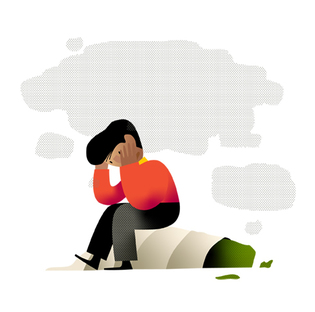
Alex Eben Meyer.
In 2022, a quarter of Americans age 12 and older used cannabis. As of this year, two dozen states have legalized marijuana for recreational use, and 48 states allow its distribution for medical purposes. Not only is cannabis use more widespread, but the drug’s potency has steadily increased, with the average amount of THC—the main psychoactive component—rising more than tenfold in the past 50 years.
Not surprisingly, cannabis use disorder (CanUD) has also been increasing. A recent Yale-led study shows a significant genetic link between CanUD and several serious mental health conditions. Defined by excessive use, cravings, and an inability to stop using despite negative (and sometimes life-threatening) consequences, CanUD affects an estimated 30 percent of marijuana users, with those 18 to 25 particularly likely to develop the condition.
The team analyzed previously published genome-wide association studies, which examine the genomes of large numbers of people to identify genetic markers associated with a trait. The datasets informed how genetic variants might relate to disease, enabling researchers to perform analyses of whether and to what extent the genetic risk for one disease or trait affected the genetic risk for another disease or trait.
They noted “bidirectional causal relationships” (meaning that each element is both cause and effect) between CanUD and bipolar disorder, anxiety disorder, major depressive disorder, and post-traumatic stress disorder—relationships not observed in previous studies. They noted also a bidirectional causal relationship between cannabis use itself (not CanUD) and ADHD. The study was published in Nature Mental Health.
With medical marijuana becoming increasingly legalized, the findings have major public health implications and highlight the need for more randomized clinical trials. “We might read that cannabis can benefit mental health disorders,” says Marco Galimberti, associate research scientist at Yale School of Medicine and the study’s first author. “But our work shows, for instance, that cannabis is more likely to cause PTSD than to treat it and that, overall, people with cannabis use disorder can have a higher risk of developing a range of psychiatric illnesses.”
 loading
loading